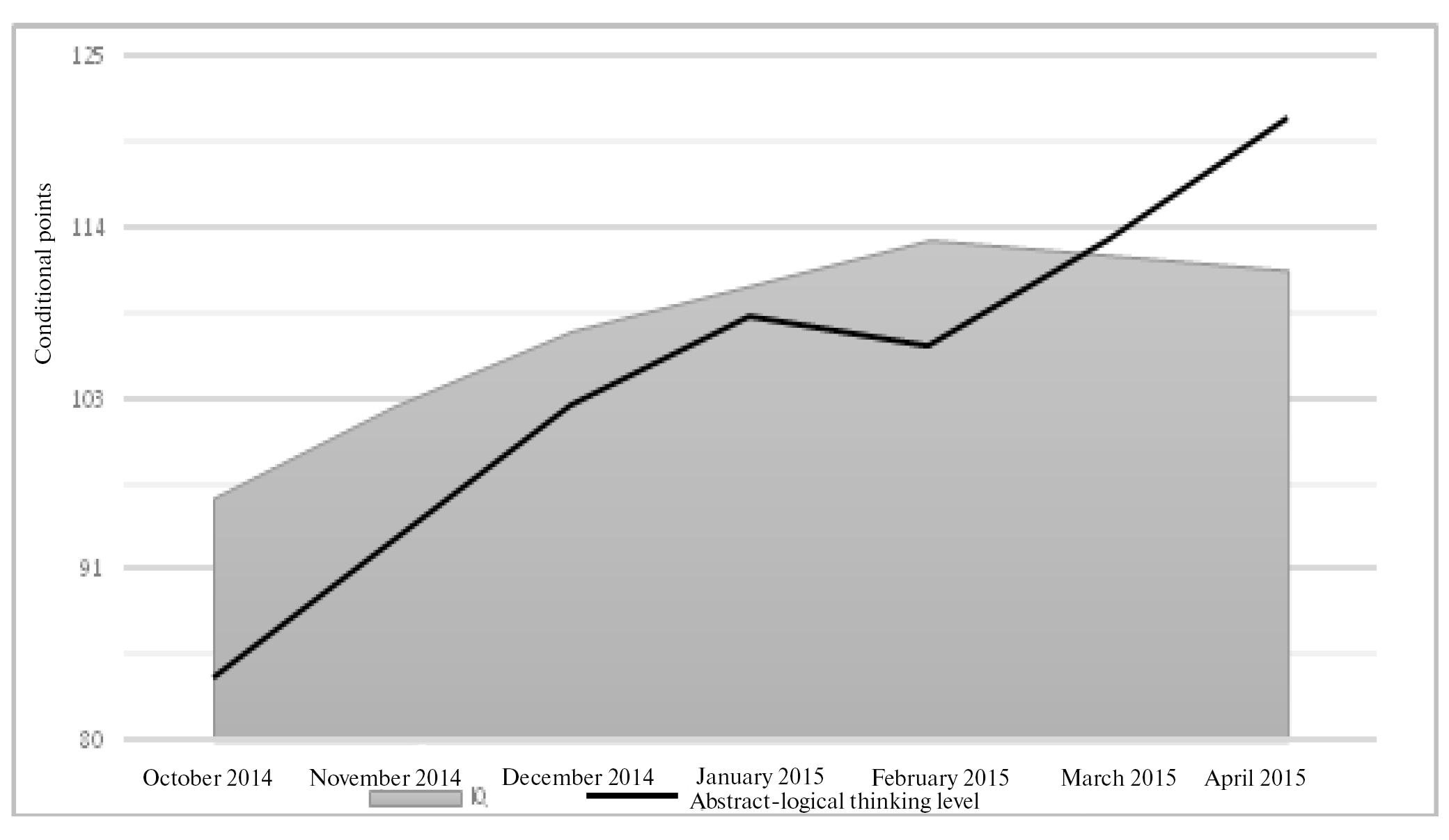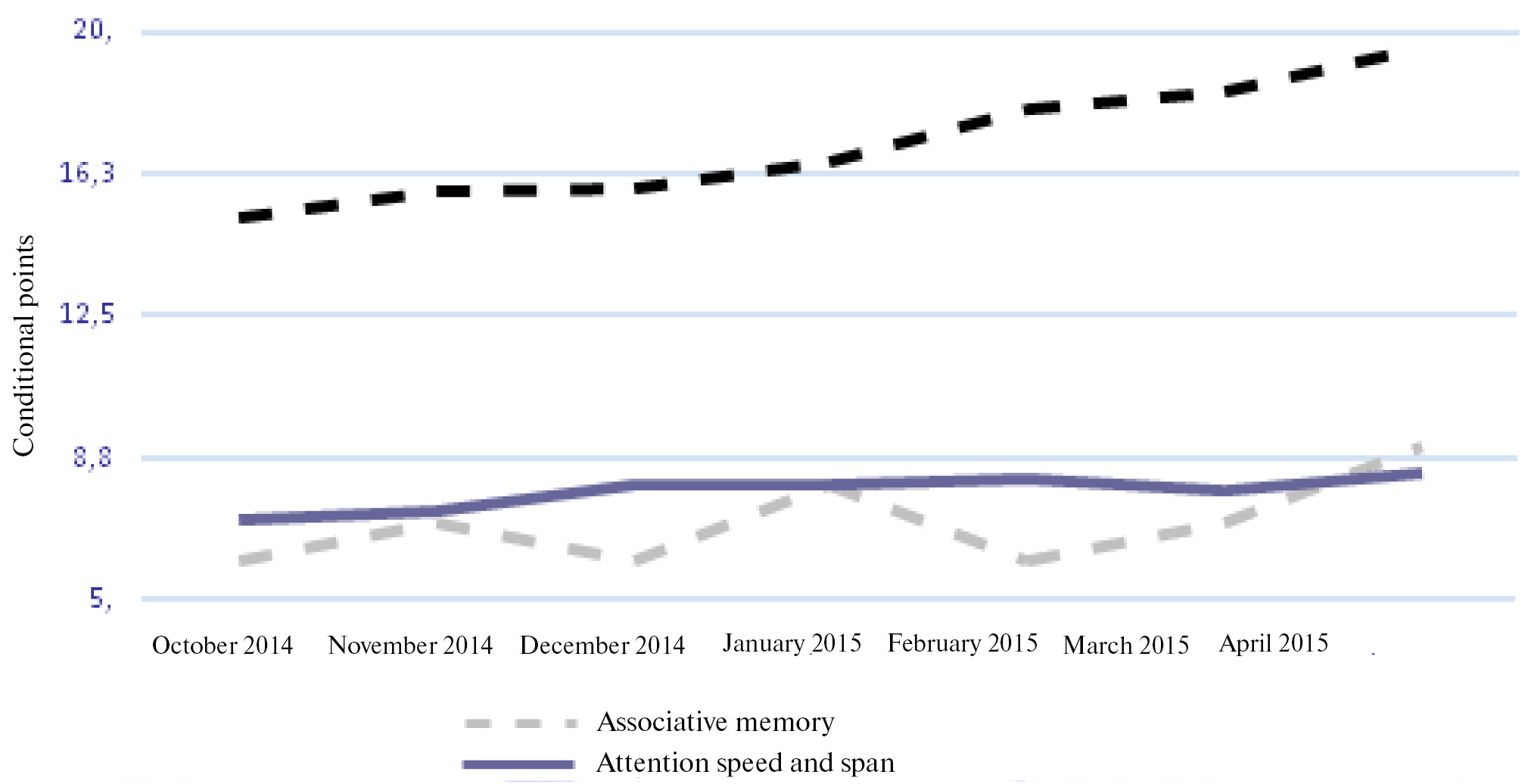Chess as multicomponent type of adaptive physical culture
Фотографии:
ˑ:
Associate professor, Ph.D. I.V. Mikhaylova
Dr.Hab. A.S. Makhov
Associate professor, Ph.D. A.I. Alifirov
Russian State Social University, Moscow
Keywords: adaptive chess education, students, adaptive chess sport, humanistic concept, adaptive physical education, computer-aided learning.
Introduction. From the standpoint of the ideals and values of the humanistic concept, man is regarded as a target and a criterion for the evaluation of various aspects of social life and social development, inclusive of sports. As noted by V.I. Stolyarov, A.A. Peredel'skiy and M.M. Bashaeva, humanism recognizes the need for holistic, diversified personality development, as human development is the supreme social value [4]. Adaptive physical education (APhE) is used as a means and a mechanism of social integration of people with health impairments, based on their motor, physical needs in terms of motor activity implementation. S.P. Evseev and scientists from Lesgaft National State University of Physical Education, Sport and Health have identified six components of APhE, namely, adaptive physical education, sport, motor recreation and physical rehabilitation, creative body-oriented practices and extreme kinds of motor activity [1]. However, it should be noted that along with the person's needs for motor activity there is a need for psycho-physical activity in the development of intellectual potential of an individual.
Chess as a multi-factor socio-cultural synthesis of sport, art and science, is a developed system of philosophical, psychological and psycho-physical personality development. The richness of the heuristic intellectual potential of chess closely linked with the history of human thought development suggests that chess may be a rightful, but specific kind of APhE. The basis of this kind of APhE is not the motor but psycho-physical needs of persons with health impairments for actualization and increase in brain cognitive reserve, as the degree of development of professionally significant mental functions as well as moral and volitional characteristics of an individual determine the priority of mental preparedness in chess [2]. Let us specify the content of the main components of chess as a form of APhE identified by the authors of the article who have a vast experience of elite athletes and highly-skilled coaches at their disposal, namely, adaptive chess education and sport, psycho-physical chess recreation and rehabilitation, creative intellectually oriented chess practices and extreme kinds of psycho-physical chess activity.
Let us refer to the content analysis of chess education involving 997 students with health impairments at the premises of Russian State Social University (RSSU) and aimed at increasing cognitive performance [3].
Objective of the research was to identify the specifics of formation of professionally significant characteristics of students by means of chess, including the development of associative and operative memory, volume of attention and its refocusing, evaluation function, abstract-logical and operative thinking using questionnaires and diagnostic tests.
Materials and methods. Researchers of the Department of Physical Education and Recreational Technologies of RSSU carried out experimental adaptive chess education in compliance with the innovative program “Adaptive chess education” of the discipline “Physical education” developed for small special health group students during 2012-2015, taking into consideration the requirements of the Third Generation Federal State Educational Standards. Control measurements of psycho-physiological and intellectual performance were carried out in the period from October 2014 through May 2015.
For the formation of positive motivational and value orientations with regards to the psycho-physical excelling process in 997 students the methods of computer-aided learning proposed by B.F. Skinner were used, and the concept of formation of mental actions and concepts of P.Ya. Gal'perin and N.F. Talyzina was applied. The level of intellectual development - IQ (intelligence quotient) – was determined by the D. Wechsler's scale consisting of 11 verbal and non-verbal tests. Comprehensive assessment of psycho-physiological indicators included a number of methods: the volume of operative memory was defined by the method of G.A. Berulava, the number of rows of associative memory – by the method of K.A. Ramul’, the speed of attention and its span – by the method of S. Schulte, the level of abstract-logical thinking – by the method of M.A. Voynarovsky and the level of operative thinking development – by that of K.E. Yashchishin. Such methods as surveys, questionnaires, testing, diaries of personal achievements kept by the students and progress charts were used.
Results and discussion. Adaptive chess education is aimed at developing proper understanding of the powers and potential of the body and the prospects of socialization in students, including feasible employment in the sphere of chess and/or information.

Fig. 1. Dynamics of indicators of students with health impairments
As it has been determined earlier, adaptive chess education can be carried out in three forms: remote, standard and integrated; in this case integrated teaching took place [3].
Table 1. Dynamics of psycho-physiological characteristics (n=997)
|
Psycho-physiological characteristics (units, scales) |
Control assessments (experimental reference assessments) |
||||||
|
I |
II |
III |
IV |
V |
VI |
VII |
|
|
Operative memory volume (n, number of objects) |
7±1.6 |
7±1.8 |
8±2.4 |
9±0.6 |
10±2.1 |
11±1.1 |
11±0.8 |
|
Associative memory (n, number of ranged associative rows) |
6 |
7 |
6 |
8 |
6 |
7 |
9 |
|
Attention speed and span (n, number of points by the scale) |
7.1 |
7.3 |
8.0 |
8.0 |
8.2 |
7.9 |
8.3 |
|
Abstract-logical thinking level (n, number of points by the scale) |
84 |
93 |
102 |
108 |
106 |
113 |
121 |
|
Operative thinking development level (n, number of points by the scale) |
15.1 |
15.8 |
15.9 |
16.6 |
18.0 |
18.4 |
19.6 |
Students treated chess as a means of diversified personality development – development of diligence, will power, discipline, proactive attitude and creativity. These personality traits manifested during a game of chess made it possible to expand reflective capacity and increase cognitive reserves of the brain. Chess analysis that the students did while playing the game reveals new thinking strategies and tactics having a positive impact on the formation and course of cognitive processes that contribute to recreational restoration of psycho-physiological functions of the body. Intellectual and cultural approach to playing chess reveals the potential for the development of aesthetic and heuristic functions of the student's personality. Training sessions based on the elements of chess art therapy and music and fairy tales content of multimedia educational computer programs supported the dynamics and the reversibility of the nervous processes as the main characteristic of logical thinking. The dynamics of the intellectual development level that was identified and validated by researchers, thus making it possible to substantiate the effectiveness of chess as a specific type of APhE for people with impairments, is the main parameter stating the amount of cognitive reserve of the brain. Development dynamics of the students’ IQ is shown in Figure 1. Analysis of the research results reveals the dynamics of the IQ growth rate during a year of up to 30% compared with the original data at the beginning of the academic year. In line with the research objective there was carried out the testing of the psycho-physiological characteristics - of the development level of associative and operative memory, attention span and switching, abstract-logical and operative thinking. The data in Table 1, presented in the graphic form in Figure 2, are indicative of the dynamics of development of psycho-physiological characteristics of chess players caused by a system of intensive recreational and recovery techniques and methods.

Fig. 2. Dynamics of psycho-physiological characteristics
Conclusion. Development and testing of adaptive chess education of students with health impairments at the premises of a higher education institution enables us to make the following conclusions:
-
Adaptive chess education contributes to the development of abstract-logical thinking, operative and visual memory and attention span; compensatory speech capabilities; increased mental performance.
-
No linear relationship between the development of physical and psycho-physical characteristics of students with health impairments aimed at increasing mental performance was detected.
-
For more individualized education it is necessary to: а) take into account the specifics of health impairments of students and assign them to small learning groups based on nosology; b) avoid mechanical revision of the material; it is necessary to employ illustrative means.
-
Up to 30% growth of developed professionally significant psycho-physical characteristics takes place during adaptive chess education being carried out for a academic year. IQ increases up to 115-120 points on average confirming the positive dynamics of development of intellectual and activity potential of an individual.
-
Similarity of common and specific competences needed for successful performance of specialists and players contributes to development of professionally significant characteristics of future career. They include objective assessment and forecasting, foreseeing performance results, self-discipline, critical self-analysis, strong-willed character traits that contribute to self-education.
-
Duration of mental capacity of students varies and depends on the nature and severity of their disease, age, individual schedule and motivation with regards to chess education.
References
- Adaptivnaya fizicheskaya kul'tura v praktike raboty s invalidami i drugimi malomobil'nymi gruppami naseleniya: uchebnoe posobie (Adaptive physical education in work with impaired people and those with limited mobility: study guide) / Ed. by prof. P.P. Evseev. – Moscow: Sovetskiy sport, 2014. – 298 P.
- Alifirov A.I. Vliyanie igry v shakhmaty na psikhofiziologicheskuyu deyatel'nost' razlichnykh sistem organizma (Psycho-physiological activity of various body systems influence by game of chess) / A.I. Alifirov, A.V. Zaryvkina // Aktual'nye problemy razvitiya sovremennoy nauki i obrazovaniya: Sbornik nauchnykh trudov po materialam Mezhdunarodnoy nauchno–prakticheskoy konferentsii 30 aprelya 2015: v 5 chastyakh. Chast' IV (Actual problems of modern science and education: Proceedings of the International res.-pract. conference, April 30, 2015: 5 parts. Part 4). Moscow: «AR–Konsalt», 2015. – P. 13–15.
- Mikhaylova I.V. Tekhnologiya adaptivnogo shakhmatnogo obucheniya detey invalidov (Adaptive technology of chess education for children with impairments) / I.V. Mikhaylova, P.V. Shmeleva, A.P. Makhov // Teoriya i praktika fizicheskoy kultury. – 2015. – № 7. – P. 38–41.
- Stolyarov V.I. Sovremennye problemy nauk o fizicheskoy kul'ture i sporte. Filosofiya sporta: Uchebnik (Modern problems of sciences on physical education and sport. Philosophy of Sport: Textbook) / V.I. Stolyarov, A.A. Peredel'skiy. - Moscow: Sovetskiy sport, 2015. – 461 P.
Corresponding author: helga@chessy.ru
Abstract
In the present paper the authors provide the theoretical and methodological substantiation of chess as a full, but specific type of adaptive physical education. The components of chess as a form of adaptive physical education were classified: adaptive chess education and sport, psychophysical chess recreation and rehabilitation, creative knowledgeoriented chess practice and extreme types of psychophysical chess activity. In the study, the program of additional vocational training "Fundamentals of adaptive chess sport, education and recreation" has been developed. A 30% growth of professionally significant psychophysical qualities being developed takes place in the process of adaptive chess education of 997 students within an academic year. The intelligence quotient IQ goes up to 115120 points on the average, confirming the positive trend of development of intellectual and motor potential of an individual. Similarity of general and specific competences of chess players and specialists, including objective assessment and forecasting, advance knowledge of performance results, self-discipline, critical selfanalysis, volitional powers contributes to development of professional qualities which are significant for future work.




 Журнал "THEORY AND PRACTICE
Журнал "THEORY AND PRACTICE